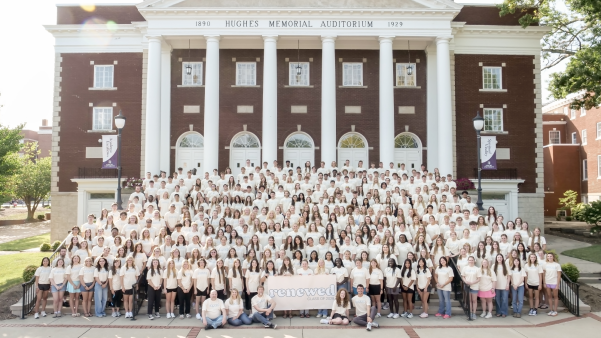Read Matthew 1:18-21
THE GENEALOGY at the end of Matthew chapter 1 is curious, isn’t it? After a long and, to many ears, boring list of begetting names and family lineages, the story ends with the news of Mary’s scandalous pregnancy and Joseph grappling with a miserable decision—publicly shame Mary (with the resulting possibility of her death!) or divorce her without a fuss, but likely to a life of misery and loneliness.
There are nights that I fall into my pillows with a mind full of restless and toxic thoughts that keep me staring at my white ceiling and from much-needed sleep. Nonetheless, what occupies my mind is nothing compared to what Joseph was dealing with upon the news that Mary was pregnant. His days must have been filled with a paralyzing sadness at this betrayal, and nights restless with their tossing and turning as he faced what seemed like only two options. Imagine: You’re excited about the prospects of marriage, you’re moving through the betrothal stage of the process—more than an engagement but not yet marriage—working diligently to ensure that all is lined up for a wedding feast that will include friends, family, and days of eating, drinking, and celebrating only to be told months before the big day(s) that you’re going to be a dad and, oh, by the way, the baby isn’t yours (of course!) or even another man’s!
When Joseph is finally able to sleep after stewing over the pain of his impending Solomonic decision, he is visited in his slumber, and the dream changes his life. A messenger from God appears to him and whispers, “Joseph son of David, do not be afraid to take Mary home as your wife, because what is conceived in her is from the Holy Spirit. She will give birth to a son, and you are to give him the name Jesus, because he will save his people from their sins” (Matt. 1:20–21).
Here’s the thing: Joseph is a simple worker of wood; he is not any rabbi’s apprentice. Nonetheless, he is a faithful Jew—going to temple on High Holy Days, observing feasts and fasts, and having some understanding of the Hebrew Scripture from the training of his youth. The angel’s proclamation of the Spirit’s presence could possibly have made some sense to him. And yet, what he’s told in the depth of his REM sleep that night causes him to take massive action and redirect the entire course of his life. When Joseph wakes, he knows what to do. Does doubt linger? How could it not? Is he still confused? Probably. Does he begin to calculate the reputational cost of his obedience? Likely. But there is no wavering for Joseph.
The Spirit’s work—that which began at the creation of the cosmos, continued through the kings and prophets as told in the early scrolls, and that animates his ancient world—that work must continue. It must be birthed. And the child, “Jesus”—not a unique name of that generation or time, but one with the immeasurably important promise he will save his people from their sins—will be received and cared for by his earthly father and presented to the world.
After nights struggling under a shroud of doom obscuring his family’s future, Joseph rises that morning with a renewed call and a God-word that rests upon his shoulders. The dawn of a new day has begun. The dawn of a new life is promised. The dawn of a new creation is about to break through, and the dark of the night has been dispelled. Everything has been changed.
George Sweetman has served as the dean of student life at Tyndale University in Toronto for the past 25 years.
This article is part of A Time for Wonder, a 4-week devotional to help individuals, small groups, and families journey through the 2024 Advent season. Learn more about this special issue that can be used Advent, or any time of year at http://orderct.com/advent.










